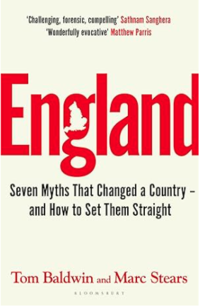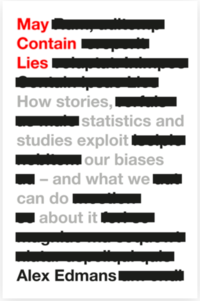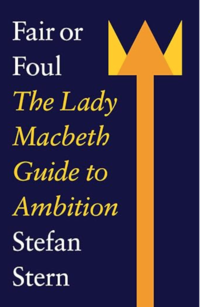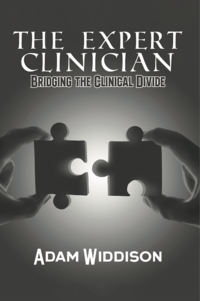OFF THE SHELF: JULY 2024

OFF THE SHELF: JULY 2024
English myths debunked, Oxford memories, Havana politics, ambition and clinical excellence
Published: 11 July 2024
Author: Richard Lofthouse
Share this article

England: Seven myths that changed a country – and how to set them straight
by Tom Baldwin and Marc Stears (Bloomsbury, 2024)
Weirdly this volume reads exactly like a state of the nation address just before the election that has just passed – the authors (Baldwin, Balliol, 1985; Stears, Corpus, 1989) both politicos and buzzing around the country almost like their own version of a campaigning bus, to ask what is England now. Even by page 2 they are ‘plotting a path towards a better future’ which sounds awfully like a campaigning speech. They score a clever early blow by reminding readers that England is not a country in any normal sense, because it doesn’t exist separately from the United Kingdom. ‘It has neither sovereignty nor passports, embassies nor armed forces.’ At least Wales has its own devolved Parliament. They then note how there are numerous ways of embracing a largely imagined identity premised on an imagined past, and others who loathe all this to the point of refusing to go for a walk in the countryside for fear of tripping up on bunting. The book dispels some of the false ideas through a cook’s tour that culminates in an examination of the Establishment that uses Oxford University as its central vector. Within that chapter they land no particular blows, we suspect because the authors are too sensible. When they come to interview Sarah Gilbert of COVID vaccine fame, they are forced to conclude that she is entirely hard working, sober, focused and good. Then they land the soft blow of noting how Oxford’s Chair in Vaccinology, post-COVID, was endowed by Wafic Saïd, the arms dealer and major Oxford benefactor. It’s part of a broader argument that says, correctly, that some of the biggest donations top the University have been coming from individuals with no previous relationship to Oxford University, some of them controversial; is this a good look or is it a bit too opportunistic? But the original point about the Establishment is largely transmuted into a broader argument, that if ordinary people are priced out of living in Oxford (or, dare we say London) and were it to become merely a playground of a wealthy elite, then something will have gone horribly wrong. At the time of writing the British General election had just taken place and the baton handed to Labour, and with it the whole, exhausting job of addressing a nation uneasy with a botched identity. The book is like an hors d’oeuvre to that political main course, and it ends by insisting on the value of the country’s ‘subtle imperfection’ and ‘muddled complexity.’ It’s not difficult to see why angry populism is resurgent, but it is difficult to know what the true alternatives are.

Oxford Days, 1970-73 by Vinod Chopra
The author (Wolfson, 1970) is, we understand, contemplating a sequel to this memoir that would take the action back to India. For now we have his three years as an Oxford post-Doc and he reminds us at the outset that the prejudice against outsiders was stufling and shameful – a typical opener to an Indian student in 1970: ‘Do you worship cows?’ But professionally, Oxford was good to him, allowing him to work at the Clarendon Laboratory with Dr Kurt Mendelssohn. More than this, it was a great prestige to win it in the first place, the sole Nehru Scholarship awarded in 1970, and ‘the first and only time that the Nehru Memorial Scholarship was awarded for three years instead of the normal one year.’ Vinod adds, ‘The book recites real anecdotes depicting some curious habits and very helpful attitudes of the English and queer life style of the Indians at Oxford. It also enlists my personal events such as meeting Lord Mountbatten, HM the Queen Elizabeth and other stories.’

May Contain Lies: How Stories, Statistics and Studies Exploit Our Biases - And What We Can Do About It by Alex Edmans (Penguin, 2024)
The author (Merton, 1998) is a Professor of Finance at London Business School but remains very engaged with his alma mater. He says, ‘This book is about misinformation … but with a twist. We often think that misinformation is about checking the facts, but the punchline of the book is that this isn’t enough. Even if the facts are 100% accurate, they may still be misleading – we make incorrect inferences due to our biases. I focus on these more subtle, and more dangerous, mistakes: in the spirit of Thinking, Fast and Slow but applied to information rather than choices, and expanding on my TED talk, What to Trust in a Post-Truth World (which has 2 million views).’

Our Comrades in Havana: Cuba, the Soviet Union, and Eastern Europe, 1959–1991 by Radoslav Yordanov, Stanford University Press, 16 July 2024
In the immediate aftermath of its successful revolution, Cuba was heralded by socialist nations as the vanguard of communism in Latin America in the early 1960s. But by the late 1980s, Cuba's inability to adopt the modes of socialist planning and Mikhail Gorbachev's reforms had deeply soured the relationship between Havana and the Soviet-led socialist bloc. While secondary literature often highlights Cuba's political and economic relations with Washington and Moscow, Havana's ideological, political, and economic relations with the Eastern European states have received considerably less attention. This book aims to fill this gap by offering a detailed chronological account of how Cuba's post-revolutionary development was influenced by Eastern European diplomats.

Fair or Foul: The Lady Macbeth Guide to Ambition, by Stefan Stern (Unbound, July 25, 2024)
Fair or Foul considers different aspects of ambition and its place in our lives. It asks: what does success mean? When is enough enough? And is Lady Macbeth right to suggest that only those with the 'illness' of ambition achieve the highest goals? Stefan draws on the major themes of Macbeth and discusses how they can be applied to modern life. Expect to discover how ambition and success work together, how attitudes have shifted over time, and how gender roles have an impact on our goals. Incisive, contemporary and accessible, this book is for anyone who is looking for a change of direction or emphasis on how to move forward. It will also provide consolation, amusement and plenty of insightful meditations on the complex nature of ambition.

The Expert Clinician by Adam Widdison (Austin Macauley, 2024)
The Expert Clinician is by Adam Widdison (Christ Church, 1978), who has a fantastic career behind him as a hospital consultant and more roles than we can list including Hunterian Professor and a stint in Los Angeles as a Rsearch Fellow at University College. The book is a distilling of much wisdom, ‘to help trainees become better clinicians, to bridge the divide between the traditional clerking learnt by students, and the methods used by experienced clinicians.’
Off the Shelf typically concerns books where there is an Oxford connection, whether the place, the University or of course the author. Our editorial selection rests on books appealing to the broadest alumni audience.
For more recommended books from Oxford academics and alumni, head over to the @oxfordalumni social channels on Instagram, Facebook and X.
Alumni can claim 15% discount in any Blackwell's store with a My Oxford Card.
Alumni can claim 20% discount at Oxford University Press.
Join the Oxford Alumni Book Club at: www.alumni.ox.ac.uk/book-club
Lead Image: Getty Images















